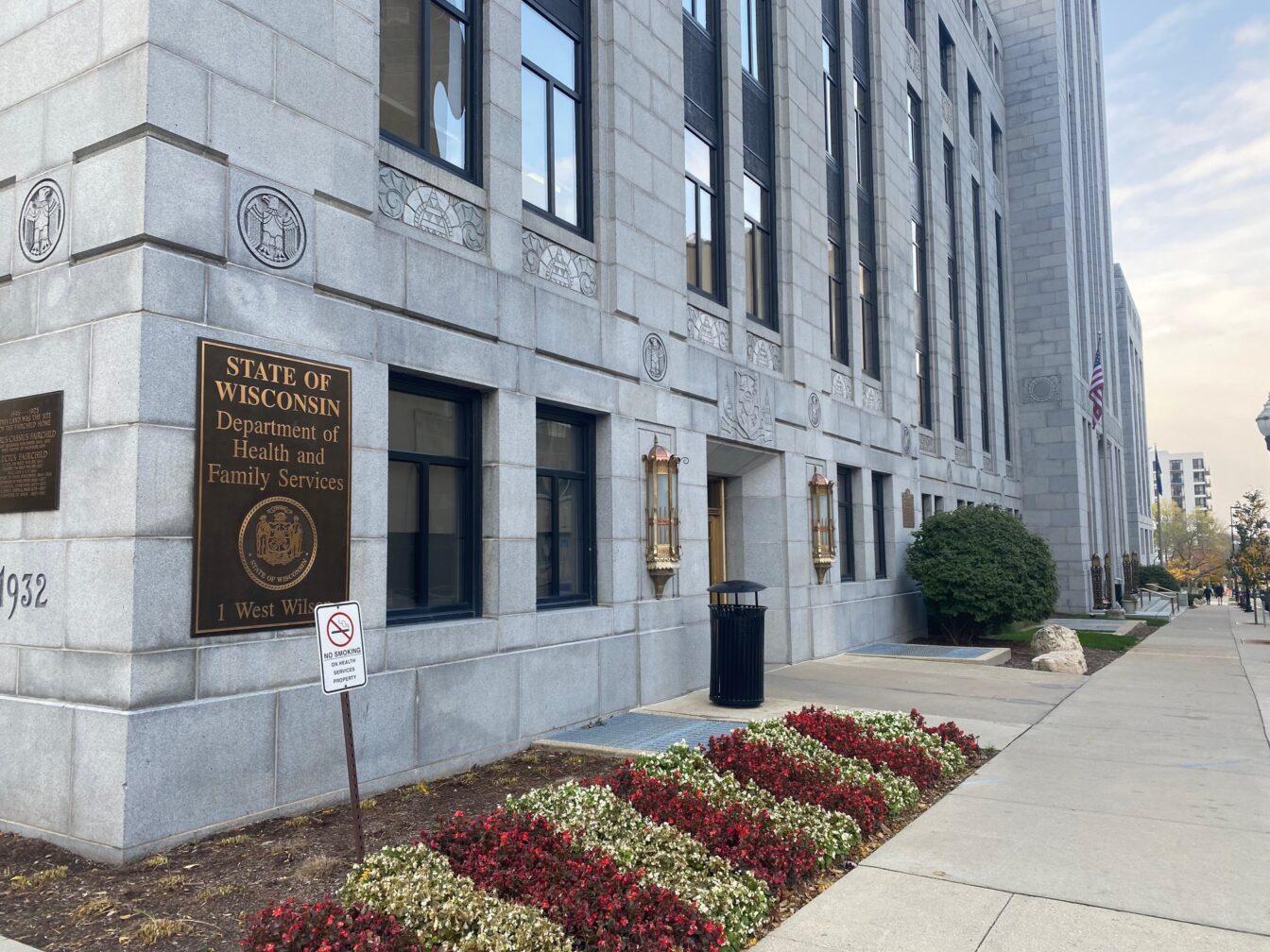As the 2020 election inches closer, we’ll likely be subject to extensive, exhaustive rhetoric about “the American dream” and the hard work that is the ticket to success.
For some, their life has been a testament to the potential that exists in this country. For most, barriers to access keep the American dream just that — a dream.
There are many such barriers, some so deeply entrenched into the American experience that we simply accept them as standard practice. In recent years, many have pointed to unpaid internships as a glaring example of such barriers at work.
 In this country’s intensely capitalist culture, payment for completed work is a core tenet of the American canon. For many, then, the widespread acceptance of unpaid internships seems antithetical to everything they’ve come to expect from an economy that claims it allows for the realization of goals as lofty as the American dream.
In this country’s intensely capitalist culture, payment for completed work is a core tenet of the American canon. For many, then, the widespread acceptance of unpaid internships seems antithetical to everything they’ve come to expect from an economy that claims it allows for the realization of goals as lofty as the American dream.
Indeed, their presence in America’s burgeoning workforce isn’t insignificant — a 2013 report from the National Association of Colleges and Employers found that just under half of all internships nationwide were unpaid. And they’re present in industries across the board — from communications and business, to politics and government, to engineering and tech.
Debate over their continued practice has grown intense, making the future of these professional opportunities uncertain. But regardless of public opinion or private practice, U.S. labor law is explicit — unpaid internships are legal.
Letter of the law
The Fair Labor Standards Act, which was passed in 1938 and which has been regularly amended and expanded throughout the postwar period, requires for-profit organizations to pay their employees at least the federal minimum wage.
It would appear, then, that unpaid internships — or any unpaid work — with for-profit organizations would be illegal.
But the situation is complicated by technicalities and legal definitions. Per the U.S. Department of Labor, only those classified as “employees” under the law have a right to minimum wage compensation. Interns often aren’t classified as such, and therefore don’t always enjoy a legal right to compensation. “Experience will help you in your career and you can put it on your resume, but experience won’t pay the grocery bills. It won’t pay your loans. Ultimately, if a student has to pick between a paying job and an unpaid internship, most students have to pick the paying job. That leaves so many voices unheard.”
The distinction is important, as it’s this legal technicality that allows for so many unpaid opportunities in industries across the board.
However, for organizations offering unpaid internships, the government requires compliance with a series of seven standards. Collectively, these standards are referred to as the “primary beneficiary test,” which courts have used when ruling on cases involving unpaid work.
According to the U.S. Department of Labor, the test “allows the courts to examine the ‘economic reality’ of the intern-employer relationship to determine which party is the ‘primary beneficiary’ of the relationship.” For an unpaid internship to be legal under the FLSA, it must meet the standards outlined under the primary beneficiary test.
The test’s first part maintains that both the employer and the intern must understand that there is no expectation of compensation. Such an expectation would establish that intern as an “employee” under the law, and would thus entitle them to at least the federal minimum wage.
The next few parts closely examine the connections of the internship to a student’s education and college commitments.
The test requires that any training offered by the employer must be similar to that offered through the intern’s college curriculum. It also requires some connection between the internship program and the intern’s education, either through “integrated coursework or the receipt of academic credit.” Finally, the test maintains that the program must accommodate the intern’s academic calendar.
The test also requires that an unpaid internship’s duration be limited to a time period that provides “beneficial learning.” Additionally, the work experience must “complement, rather than displace” paid employees, all while providing “significant” educational benefits. Finally, the test directs that both the intern and the employer must understand that the intern is not entitled to a paid position when the internship is over.
The Department of Labor maintains that the test is “flexible,” meaning that the legality of an unpaid internship program is examined on a case-by-case basis, and “no single factor is determinative.”
 Such a legal basis has allowed unpaid internships to flourish among for-profit businesses. According to NACE, 38 percent of graduating seniors in 2013 reported an unpaid internship with a for-profit organization.
Such a legal basis has allowed unpaid internships to flourish among for-profit businesses. According to NACE, 38 percent of graduating seniors in 2013 reported an unpaid internship with a for-profit organization.
But the law’s standards only apply to for-profit employers. Non-profit organizations and arms of the government are entirely exempted, facing no standards or legal restrictions on any unpaid internships they may offer.
National numbers reflect such a laissez-faire legality, as NACE found that 62 percent of all unpaid internships were with governmental bodies or non-profit organizations in 2013.
But regardless of an organization’s non- or for-profit status, the underlying logic behind any unpaid internship program, and the legal standards that allow for them, appears to suggest that relevant professional experience is its own form of payment.
Ripple effects
Like any political science major looking to break into the world of campaign politics, UW senior Laurel Noack knows that experience and connections are crucial in landing a post-graduation job.
To that end, she’s held several internships with some big names, including the campaigns of Sen. Tammy Baldwin, D-Wis., and Gov. Tony Evers. But there’s just one catch to these otherwise exciting opportunities — they both were unpaid.
Her experience isn’t unique for those in her field. Campaigns typically justify such unpaid opportunities through promises of unparalleled relevant experience, the chance for a full-time position after graduation and crucial connections that help interns land a paying job.
But for Noack, those justifications aren’t good enough. Since leaving her unpaid internships, she’s become an outspoken advocate of paid opportunities, both in political campaigns and beyond. At the heart of her advocacy is a belief that experience can’t replace a paycheck, especially for those students who rely on a steady source of income to make ends meet.
“Experience will help you in your career and you can put it on your resume, but experience won’t pay the grocery bills. It won’t pay your loans,” Noack said. “Ultimately, if a student has to pick between a paying job and an unpaid internship, most students have to pick the paying job. That leaves so many voices unheard.”
One group Noack has followed closely in the fight against unpaid opportunities is Pay Our Interns, a paid internship advocacy organization. While the organization’s focus lies in politics and government, its work spans a variety of industries.
Guillermo Creamer, the co-founder and deputy director of Pay Our Interns, said unpaid internships are inaccessible to many students, and therefore serve as a barrier to the workforce.
“One of the things we firmly believe is that the workforce system is a pipeline,” Creamer said. “In many cases, internships are an entry point in this pipeline. If the entry point requires you to afford something, you’re really creating this level of inaccessibility … Not many Americans can shell out thousands of dollars to work for free.”
Creamer said unpaid internships and the inaccessibility they create run counterintuitive to many organizations’ express goals of fostering diversity.
One realm where this seems to ring true is the U.S. Congress, which, until last year, was notorious for its plethora of unpaid internships in one of the world’s most expensive cities. Unpaid internships on Capitol Hill were so widespread that a 2017 report from Pay Our Interns found that just 6 percent of U.S. House members paid their interns.
To Creamer’s point about workplace diversity, a 2015 report from the Joint Center for Political and Economic Studies found that people of color comprise an underwhelming portion of Congressional staff.
According to the report, just 7.1 percent of Congressional staff identified as a person of color. Broken down by U.S. Census demographic categories, that number includes just 0.9 percent who identify as black, 2.1 percent who identify as Latino, 3.6 percent who identify as Asian American and Pacific Islander, and 0.6 percent who identify as Native American. “One of the things we firmly believe is that the workforce system is a pipeline. In many cases, internships are an entry point in this pipeline. If the entry point requires you to afford something, you’re really creating this level of inaccessibility … Not many Americans can shell out thousands of dollars to work for free.”
In a list of possible solutions to this lack of diversity, the center identified hiring and paying interns from groups that advance professional development for POC specifically. And while it didn’t draw a direct line between unpaid internships and Congress’ problems with staff diversity, it’s logically consistent to conclude as much from an employer notorious for both unpaid internships and a lack of workplace diversity. Indeed, some lawmakers have started to draw such a connection amid intensified discussion over the topic earlier this year.
Despite the barriers they erect and the diversity they’re seen to stifle, many organizations claim they simply can’t afford to offer paid opportunities. Budgetary constraints, especially for small non-profits struggling to pay even full-time staff, often pose a real challenge.
Making it work
In advocating for paid internships, Creamer said Pay Our Interns pursues a “strategic” route with the promise to see their goals realized in cities and organizations across the country.
That involves a pragmatic, realistic approach, which takes local living costs and organizational budgetary constraints into consideration when advocating for wages within a particular city or at a particular organization.
But one thing paid internship advocates refuse to accept are arguments which suggest there are simply no funds to pay interns.
For organizations who proffer such arguments, Creamer said it’s “very hard to look at them and take them at their word.” Rather, he believes that paying interns is simply a matter of prioritization.
“The reality is that every company does have funding to pay their interns — they just have to prioritize,” Creamer said. “If you are an organization or corporation that is prioritizing diversity and inclusion, then by not allocating money for a paid internship program, you’re kind of looking the other way to your own mission.”
That’s a sentiment Noack echoed from her own experience.
She mentioned campaign politics specifically, particularly big, statewide races like those for the U.S. Senate. Such races regularly bring in tens of millions of dollars, but are also notorious for offering almost exclusively unpaid internships.
It’s that disconnect — between the money such campaigns raise, and the wages they claim they are unable to offer — which Noack finds unacceptable.
“Specifically, in the campaign world, we’ll see Senate races get millions of dollars within months, and we’ll see even lower-level races have hundreds of thousands of dollars — so to say you can’t pay interns $8 or $10 per hour means you shouldn’t be using them,” Noack said. “You don’t get to deny students the right to payment for hard work … I think it’s exploitative to treat students as not valuable when they obviously are.”
Interns across the country saw such budgetary prioritization play out on the national stage last year, when Congress appropriated nearly $14 million in funding for paid Congressional internships — putting an end to what had been a decades-long stretch of unpaid opportunities on Capitol Hill.
But Creamer stressed that for him and his organization, the fight against unpaid internships doesn’t stop there. At the state and local level, many governmental internships still go unpaid — not to mention other industries known for their unpaid work.
“The reality is you’ve got the fashion industry, the entertainment industry, the PR world — those workforces are full of unpaid opportunities,” Creamer said. “We have a lot cut out for us, so we definitely need to strategize how we would like to do that.”
At UW, students can attempt to access scholarship funds that financially support them when they land an unpaid internship. At SuccessWorks, accepted student applicants can be awarded anywhere from $1,000 to $5,000 in financial support. Other department-specific programs also exist, like the Audrey Harris Internship Award at the Center for Law, Society and Justice, which awards $1,000 to 10 students.
But the unfortunate reality for those who seek professional development through an internship is that unpaid work is not an unlikely prospect. Despite increased scrutiny over their practice and the intensified attention they’ve received in the national media, many students have simply come to accept them as a fact of life, and expect them as a necessary evil in the search for relevant, resumé-worthy experience.
Emily White offers professional advice to internship seeking students
A necessary evil
At UW, unpaid internships have been formally integrated into the classroom across a variety of departments.
There, one can see the “primary beneficiary test” at work — the legality of unpaid internships bolstered by their relevance in a classroom setting and their ties to related coursework. Sociology/Criminal Justice 694 — a course taught by Josh Mayers, a senior instructional specialist with the Center for Law, Society and Justice — is one such example.
In his course, Mayers said students complete a 300-hour internship and related coursework for academic credit. Through such an experience, students not only progress further in their degree and closer to graduation, but also receive relevant experience in their field of choice.
But such experiences are often unpaid, prompting a campus-specific example of what has become a nationwide discussion.
Mayers, however, said he and the students in his class don’t look at it through a lens of paid versus unpaid — rather, he views it as a more nuanced concept, which holds the possibility of long-term benefits.
“Often, even though it’s an unpaid internship, it’s giving them a few things that are of value,” Mayers said. “It’s giving them marketable work experience, it’s giving them something they can put on their resume, it’s giving them an opportunity for a recommendation from me and the placement supervisor.”
Additionally, Mayers said graduating students in his course often receive full-time, paid job offers from the organization where they interned.
Mayers said the program’s benefits expand beyond the experience and connections it offers its students, however. For fields like criminal justice and social work, which Mayers described as “fluid and dynamic,” it can be hard to determine the path one wants to pursue among the myriad options open to them.
“It’s not just that it offers them an unpaid benefit in that it offers experience — I think it’s broader than that,” Mayers said. “Consider its recommendations, it’s potential down-the-road for employment opportunities. It’s more than just a good, semester-long work experience.”
Mayers cited his own 34 years of experience in law enforcement, stressing that it can be hard to penetrate the “closed world” of social work and criminal justice. This program, he believes, accomplishes what can only be achieved through hands-on, practical experience in an internship — something which makes the debate over unpaid internships more of a nuanced conversation.
UW joins Shepherd Higher Education Consortium of Poverty, supporting internships in poverty studies
At what cost?
For many college students, financial constraints complicate what would otherwise be a clear choice.
When offered a relevant internship in their selected field, it seems a no-brainer to accept it. But when that offer lacks compensation, the answer is less obvious, if its unpaid status doesn’t negate it as a viable option from the start.
The situation is further complicated by its wider implications. When the wealth gap is at its widest point in modern memory and racial disparities continue to intensify, any program that appears to benefit the wealthy — and, disproportionately, white Americans — is likely to be met with scrutiny. And indeed it has, more so now than in years past.
With federal labor laws undergirding their continued practice, such scrutiny has set the stage for a national debate over this issue persisting well into the future. “The reality is that every company does have funding to pay their interns — they just have to prioritize. If you are an organization or corporation that is prioritizing diversity and inclusion, then by not allocating money for a paid internship program, you’re kind of looking the other way to your own mission.”
Paid internship advocates claim this is all a matter of budget prioritization. People like Noack and Creamer, who were unpaid interns themselves, likely remember that when it comes time to pay for rent, food and other necessities, they don’t get to claim financial inability — unlike those organizations who offer unpaid internships.
And yet, Creamer and Noack accepted those internships. They knew they were a ticket for advancement — for a better job tomorrow, and for access to the connections that would get them there.
How we square that underlying truth about unpaid work with other, more uncomfortable truths — namely, that they block financially disadvantaged applicants from participation and stifle workforce diversity — will undoubtedly play a major role in how this country thinks about and values labor.
In the meantime, applications will continue to be submitted. Interviews will continue to be conducted. Offers will continue to be accepted, and denials will continue to be lamented.
The machine will press on.





















